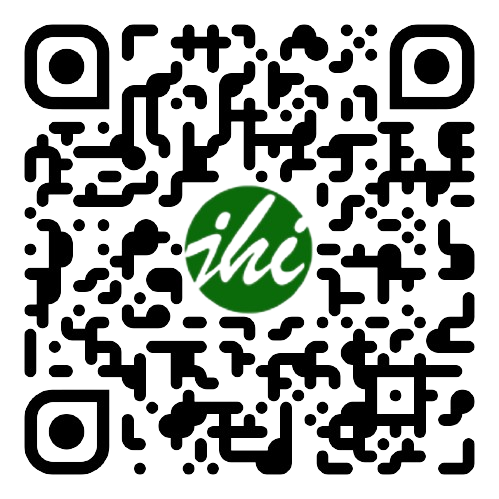Fiqh Muamalah Analysis of the Fundraising Zakah through Conventional Bank Accounts
DOI:
https://doi.org/10.28918/jhi_v21i1_08Keywords:
Conventional Banks, Fundraising, Usury, ZakahAbstract
Collecting zakah funds through conventional banks is vulnerable to elements of usury. Whereas, Islamic legal norms have strictly regulated that all assets must be protected from the element of usury, including Zakah funds. This research analyzes the collection of zakah funds by zakah fund collection institutions which is carried out by giving muzaki (zakah givers) the option to transfer zakah funds using conventional bank accounts. This paper discusses two schemes,i.e: first, the mechanism for collecting zakah funds through conventional bank accounts; second, analyzing the collection of zakah funds from the perspective of Muamalah Fiqh, namely using the Tabarru agreement. The research method uses empirical juridical with a qualitative approach. The results show, the mechanism for collecting zakah funds through conventional bank accounts is that muzakki are given the option to transfer zakah funds to a conventional bank account or sharia bank, which is owned by the institution collecting zakah funds; then the institution collecting zakah funds separates the bank interest from conventional banks for the public needs, such as building roads, public toilets, bridges, etc; and finally distributing it to Mustahiq. According to Fiqh Muamalah, the factors that cause a transaction to be haram are haram because of its substance, haram in addition to its substance and the cancellation of the contract. Meanwhile, the permissibility of a haram transaction must be channelled for social benefit, because this action is better than entrusting non-halal funds to a Sharia Bank.
References
Abdullah bin Baz. Fatawa Syeikh Abdullah bin Baz; Syaikh Shalih al-Fauzan. Al Muntaqa Min Fatawa Syaikh Shalih al-Fauzan, jilid. IV. Yusuf AlQardhawi, Fatawa Muashirah , jilid II.
Abdussalam, Onagun Isiaka, Fuadah Johari, and Mohammad Alias. "Is zakah effective to alleviate poverty in a Muslim society?: A case of Kwara State, Nigeria." Global Journal Al-Thaqafah (2015). 10.7187/GJAT762015.05.01
Abdussalam, Onagun Isiaka, Fuadah Johari, and Mohammad Alias. “Is Zakah Effective to Alleviate Poverty in a Muslim Society?: A Case of Kwara State, Nigeria.” Global Journal Al-Thaqafah 5, no. 1 (2015): 33–41. https://doi.org/10.7187/GJAT762015.05.01.
Ali, Jan A. Zakat and Poverty in Islam. Islam and Development: Exploring the Invisible Aid Economy, 2016. https://doi.org/10.4324/9781315589893-11.
Andiani, Kartika, Didin Hafidhuddin, Irfan Syauqi Beik, and Khalifah Muhamad Ali. “Strategy of BAZNAS and Laku Pandai For Collecting and Distributing Zakah in Indonesia.” Al-Iqtishad: Jurnal Ilmu Ekonomi Syariah 10, no. 2 (2018): 417–40. https://doi.org/10.15408/aiq.v10i2.6943.
Deswan, Roki Ade, Rizal Fahlefi, and Zainuddin Zainuddin. “Penggunaan Bank Konvensional Pada Baznas Kota Solok.” Tamwil 5, no. 1 (2020): 71. https://doi.org/10.31958/jtm.v5i1.2268.
Documentation at Yayasan Dana Sosial Al Falah Surabaya in "30 years of YDSF Magazine".
Documentation at Yayasan Dana Sosial Al Falah Surabaya.
Interview with Enik Cahyani as Finance the head of the financial division at Al Falah Social Fund Foundation Surabaya on January 13, 2023.
Interview with Mr. Roni Hariyanto as Finance Manager at Al Falah Social Fund Foundation Surabaya on January 13, 2023.
Interview with Mr. Widodo Satmoko as the head of the Gathering division at the Al Falah Social Fund Foundation Surabaya on January 13, 2023.
K., Amiruddin. “Model-Model Pengelolaan Zakat Di Dunia Muslim.” Ahkam: Jurnal Hukum Islam 3, no. 1 (2015). https://doi.org/10.21274/ahkam.2015.3.1.137-164.
Muhammad Zuhirsyan, Nurlinda, Irwan Musriza, Supaino. “Penghimpunan Dana Zakat Melalui Bank Konvensional Dalam Perspektif Fikih Muamalah.” Jurnal Hukum Kaidah 22, no. 3 (2023): 453–69. https://doi.org/10.30743/jhk.v22i3.7017.
Nasrin, Zuhairoh, and Peni Haryanti. “Analisis Dana Infaq Non Halal Di Lembaga Keuangan Syariah Dalam Perspektif Fiqih Muamalah Studi Kasus LSPT Tebuireng Jombang.” JIES : Journal of Islamic Economics Studies 2, no. 3 (2021): 144–59. https://doi.org/10.33752/jies.v2i3.395.
Putra, Ilham Basrian Jasuma. “Meninjau Ulang Pernyataan Pandangan Fazlur Rahman Tentang Hukum Kehalalan Bunga Bank.” Asyafina Journal: Jurnal Akademik Pesantren 1, no. 2 (2022): 1–10.
Redi, Ahmad, and Hartini Antasari. “Comparative Analysis on the Regulation of Substitute Heir’s Position in the Civil and Islamic Inheritance Law Perspective.” Proceedings of the 3rd Tarumanagara International Conference on the Applications of Social Sciences and Humanities (TICASH 2021) 655, no. Ticash 2021 (2022): 850–56. https://doi.org/10.2991/assehr.k.220404.135.
Yayasan Dana Sosial Al Falah Surabaya, “Daftar Rekening Donasi”, within the site https://ydsf.org/page/rekening-donasi (accessed on September 16, 2022 at 23:00 WIB).
Downloads
Published
How to Cite
Issue
Section
License
Copyright (c) 2023 Jurnal Hukum Islam

This work is licensed under a Creative Commons Attribution-NonCommercial 4.0 International License.
Jurnal Hukum Islam use a variety of waivers and licenses that are specifically designed for and appropriate for the treatment of data:
- Open Data Commons Attribution License, http://www.opendatacommons.org/licenses/by/1.0/(default)
- Creative Commons CC-Zero Waiver, http://creativecommons.org/publicdomain/zero/1.0/
- Open Data Commons Public Domain Dedication and License, http://www.opendatacommons.org/licenses/pddl/1-0/
Other data publishing licenses may be allowed as exceptions (subject to approval by the editor on a case-by-case basis) and should be justified with a written statement from the author, which will be published with the article.













.png)














